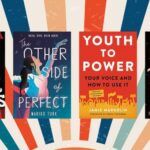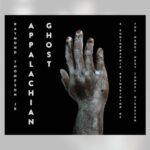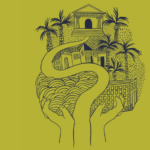
8 Emotional Memoirs about BIPOC Families
Family sagas are my favorite kind of novel, and emotional memoirs are basically the nonfiction form of family sagas, so they are very much my jam. We don’t choose our families of origin and yet they have such a huge impact on our lives, so family stories are often very thorny — and I love a thorny book. I will never get tired of reading about family messes, whether they resemble my own family or are about experiences unlike my own.
These books are about eight extremely different BIPOC families. I choose titles that focus on a diverse mix of familial themes. One of them is about the death of a parent, and another one is about becoming a parent. Some of them center parent-child relationships, while others are about extended family networks of aunts, uncles, and cousins. Some of them are woven through with history and cultural critique, while others are more narrowly focused. The one thing they have in common: they will make you feel a whole lot. They will make you feel all the things — angry, devastated, joyful, grateful, lonely, sad, comforted. Every one of them made me cry, so if you, too, are a crier, get your tissues ready.
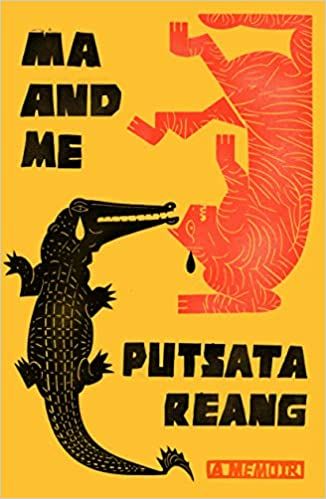
Ma and Me by Putsata Reang
This is a powerful, generous, and vulnerable memoir about intergenerational trauma — and intergenerational love. Reang was only a baby when she fled Cambodia with her family. She was so sick and weak that the captain of the boat they were on urged her mother to toss her overboard. Her mother refused, fighting for her life instead. Reang writes about all the ways she strived to make her mother proud and pay back this debt of life. She reflects on growing up the child of refugees, coming into herself as a queer woman, and her tumultuous, ever-shifting relationship with her mom.
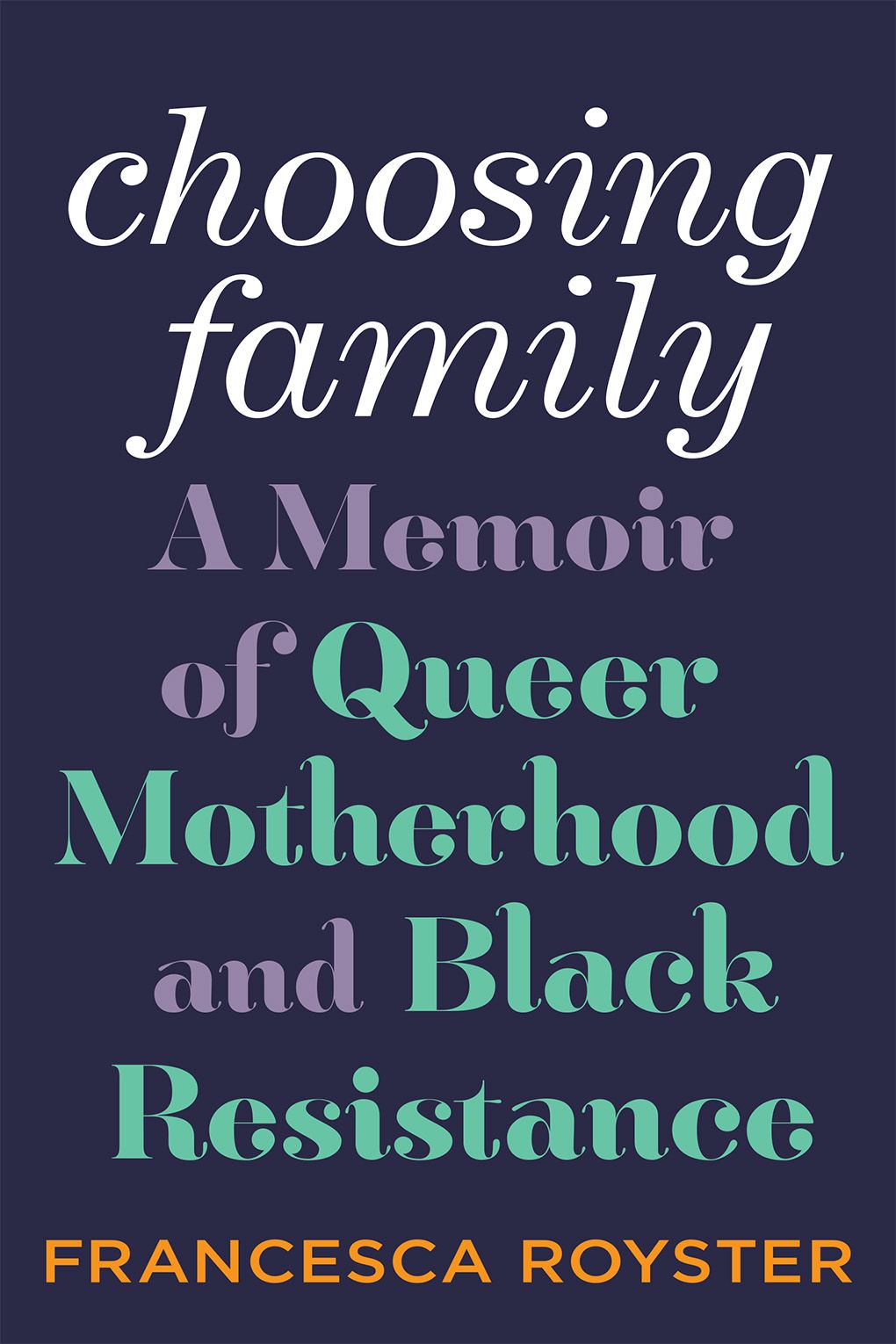
Choosing Family by Francesca Royster
Most of the books on this list are written from a certain generational perspective: adults reflecting on their families of origin. I wanted to include at least one book explicitly about family-making, and this is such a wonderful one. Royster writes about becoming a parent in her 40s, the adoption process she and her white partner went through, and all the ways in which her understanding of family was shaped by the Black women she grew up with — and the unconventional kinship models they both lived and celebrated. This is a joyful, intimate book that challenges so many assumptions about what parents (and families) look like.
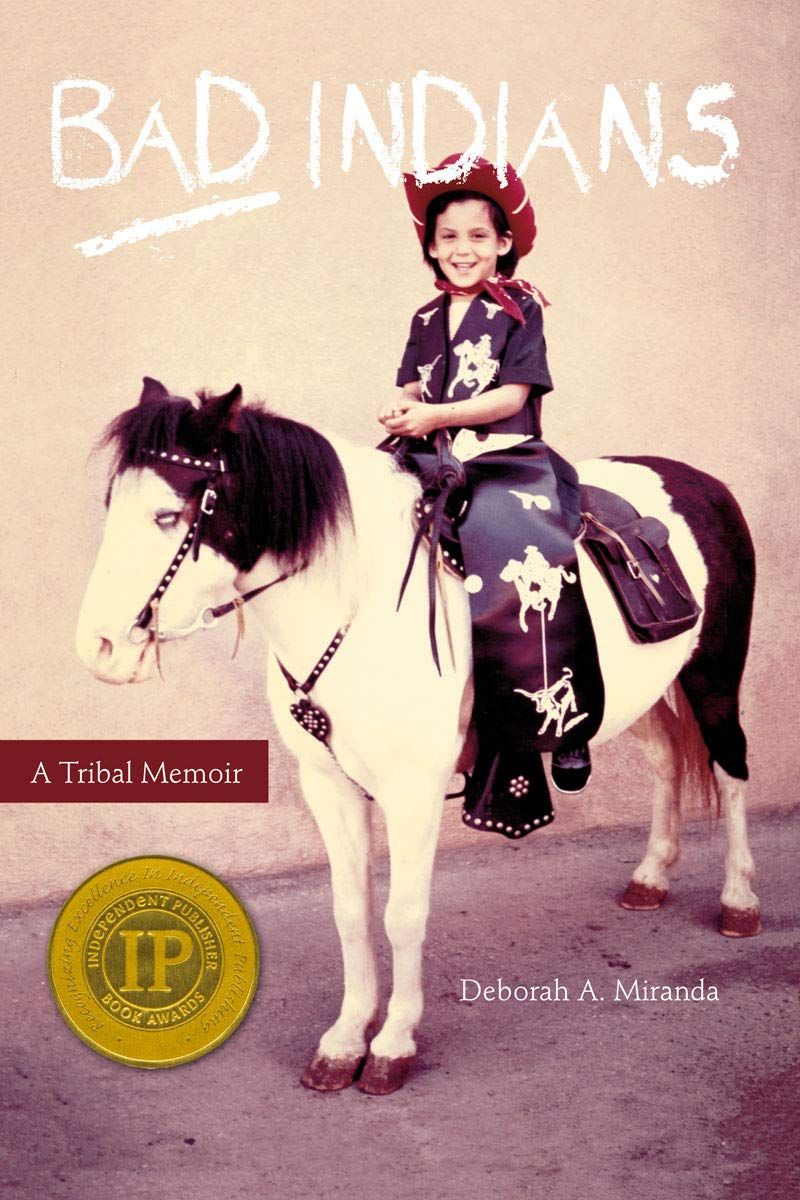
Bad Indians by Deborah A. Miranda
This book is so much more than a memoir. Weaving together prose, poetry, photographs, charts and graphs, worksheets and school assignments, oral histories, newspaper clippings, songs, and letters, Miranda uses the history of her own family to trace the history of Mission Indians in California. She shares stories of her parents and grandparents, but just as poignant are the stories she doesn’t share, or can only imagine. So much of this memoir is about reckoning with what was stolen by colonization, and how to move through that loss.
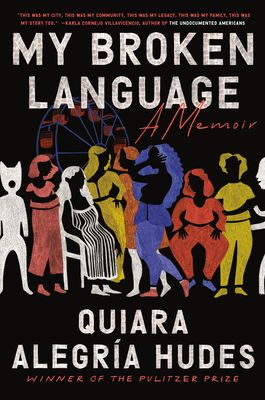
My Broken Language by Quiara Alegría Hudes
This book is emotional in a way that heals — it will probably make you cry, but you might also find yourself bent over, belly laughing. Hudes grew up in a big extended Puerto Rican family in North Philly. Her memoir is full of family drama, impromptu dance parties, the wisdom of aunts and cousins, conflicting ideas about spirituality and art, multiple languages, and a whole lot more. If you’re an audiobook person, I can’t recommend the audio highly enough: Hudes’s big love for her family comes through in the warmth and playfulness of her voice.
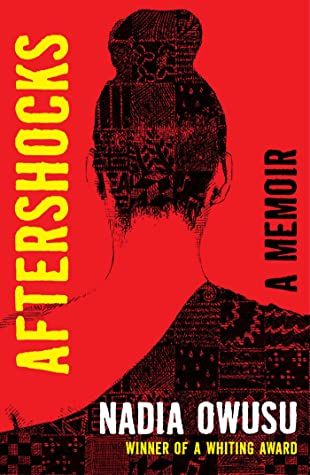
Aftershocks by Nadia Owusu
I debated whether to include this one because, in some ways, it’s more about the ghosts of family than family itself. In the end, I couldn’t leave it off the list, because it’s such a brilliant exploration of what it means to carry the weight of family legacies and to come from somewhere but not necessarily be able to name that somewhere. Owusu grew up in Uganda, England, Italy, and Ethiopia, the daughter of a Ghanaian father and an Armenian American mother. Her mother left when she was a child, and after her dad died when she was a teenager, she lived with her stepmother. In this nonlinear memoir, she explores the places and people that have shaped her, her identity as a mixed-race and Black woman, mental illness, and her complex relationship with both her parents.
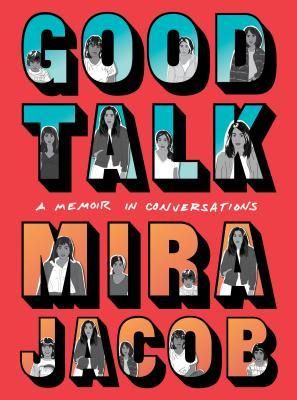
Good Talk by Mira Jacob
I’m not sure if it gets more emotional than this graphic memoir about the conversations Indian American author Mira Jacob has with her biracial son, in response to his questions about race, Trump, family, and politics. In addition to poignant reflections on motherhood, Jacob delves into her relationships with her own immigrant parents and her journey to becoming a writer. This book has become a modern classic for good reason: it’s smart, often hilarious, and compassionate. It cuts through all the nonsense that often plagues conversations about race.
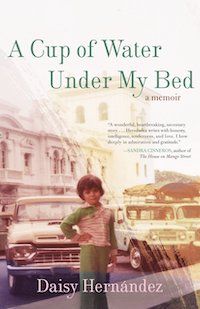
A Cup of Water Under My Bed by Daisy Hernández
This is a wonderful matrilineal family memoir: the women in Hernandez’s Cuban-Colombian family come alive in her vivid, lively, lyrical prose. It’s structured thematically, rather than chronologically, with sections focusing on language, queerness, work, and money. Whether she’s writing about her first job as an adult or the many hours she’s spent translating bureaucratic forms for her parents, her family is always at the forefront. Sometimes she tries to define herself in opposition to them, and other times she comes back to them, looking for home. Always, she writes about the people and places she comes from with love, curiosity, and nuance.
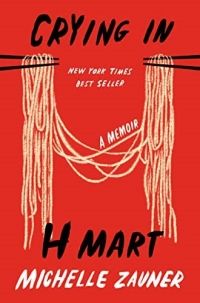
Crying in H Mart by Michelle Zauner
If you haven’t yet read this beautiful, heartbreaking memoir about grief, get ready to cry. Zauner writes about growing up a Korean American kid in a mostly-white Oregon town, her tumultuous relationship with her mother in her teen years, and the time she spent basking in her grandmother’s company in Seoul. But the heart of the book deals with Zauner’s mother’s illness and death. She writes so poignantly about grief, food, memory, regret, and caretaking. This book is the best kind of love letter — it doesn’t shy away from the hard, messy, painful realities of being part of a family.
Looking for more emotional memoirs? Check out these emotionally devastating mental illness graphic memoirs, and this list of 50 must-read memoirs to make you feel.




